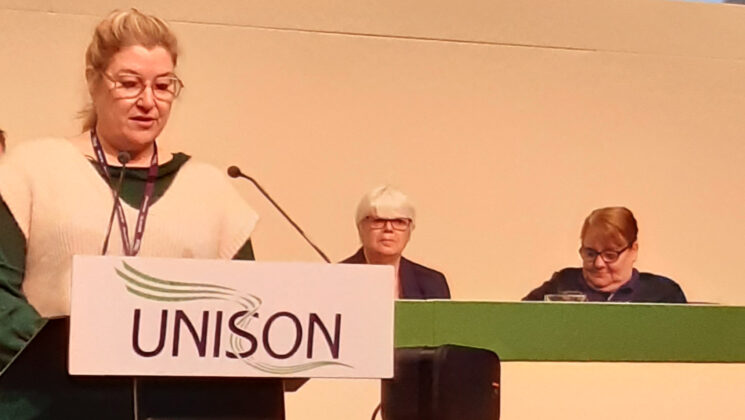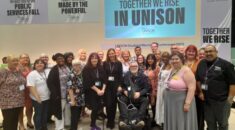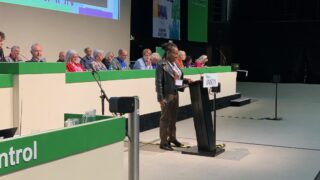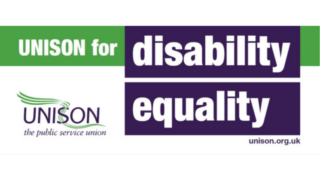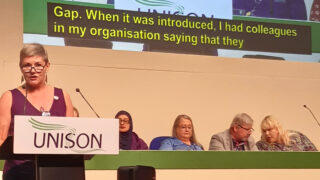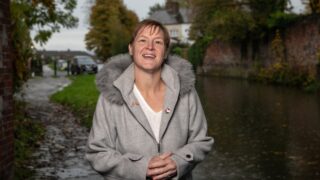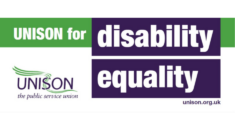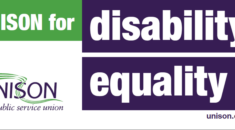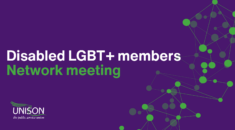UNISON’s disabled members conference opened in Edinburgh at the weekend with a review of the union’s achievements over the past year in relation to disability equality, but also a disturbing picture of the problems that continue to be faced by members.
Amanda Sweetlove, deputy co-chair of the disabled members committee (pictured above), moved the annual report to delegates of what was their largest ever conference.
Ms Sweetlove reported that the committee had been “extremely busy” building on the successes of the 2022 year of disabled workers and embedding its focus on disability equality into all of UNISON’s work.
“Some of our priorities were hybrid working, Access to Work, the cost of living crisis, reasonable adjustments and disability passports, to name a few,” she said.
“We have trained scores of new branch disability officers, seen more disability policies and passports negotiated in our workplaces and achieved more than 150 employer sign-ups to the disability employment charter.”
UNISON is a founding member of the ground-breaking charter, a set of nine demands of government that includes a new, two-week deadline for responses to reasonable adjustment requests.
And with a general election around the corner, the union has been busily promoting the charter to both government and opposition. The annual report notes that UNISON has successfully negotiated for five of the charter’s asks to be included in the Labour policy platform:
- mandatory publication of the disability pay gap, for any employer with more than 250 employees
- a simpler and more timely process for getting reasonable adjustments
- statutory time off for equality reps
- expanding access to statutory sick pay
- extending procurement rules to include equality issues.
“These are significant wins for UNISON and our partners and could see a step change for disability equality in the event of a Labour government coming to power,” the report states.
Addressing conference by video message (below), UNISON general secretary Christina McAnea also reported on the union’s campaigning work in support of the charter, the success of which is to be celebrated at a Parliament event in December.
She added that was the work of delegates, the disabled members committee and staff that ensured UNISON was “the foremost campaigning organisation for disabled workers in the UK.”
Meanwhile, Ms Sweetlove told delegates that many of the problems faced by disabled members have been worsened by the current government’s poor handling of the post-COVID recovery.
“COVID has highlighted previously hidden issues disabled members have always suffered, in relation to accessibility and the need for reasonable adjustments. Disabled members have been fighting for years to highlight these barriers and, disappointedly, in 2023 our fight is still an uphill battle.
“Sadly, our disabled members have not received any extra help or protection during this period of grave decline and this Tory government continues to fail us miserably,” she continued. “Even sadder, is the fact they appear not to care.”
She said that, post-COVID, there had been a “massive rise” in the diagnosis of neurodiverse conditions. “It is also a horrific statement to make, but the fact is our suicide rates have become an agonising and overwhelming statistic.
“What we need in our workplaces, and what we hope to achieve, is a recognition of disabled members and the basic, humanitarian approach of collective, compassionate leadership from our employers – to ensure members with these conditions are embraced, protected, and valued.”

